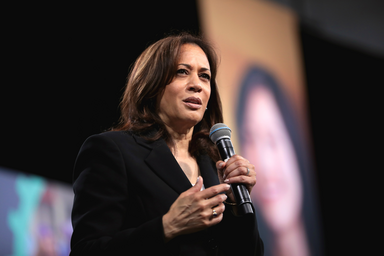Allow me to escort you back to July 19, 1848, in Seneca Falls, New York. You’re a young suffragette who is disturbed by the inequities women face in regards to the right to vote (and much, much more). A week ago, while walking through the Upper West Side in New York City, a woman handed you a flyer advertising a convention that was being held in mid-July by Elizabeth Cady Stanton and Lucrecia Mott. Only about 100 people attended the convention, but you were so moved by Stanton’s words, especially her speech which echoed the Declaration of Independence, “We hold these truths to be self-evident that all men and women are created equal.” You didn’t know this at the time, but this small convention was a preview of the impressive women’s suffrage movement to follow. On August 26, 1920, 72 years since the Seneca Falls convention, the 19th Amendment was ratified, giving women the right to vote.
Now, you didn’t think we (women) would stop there, did you? We weren’t satisfied with only being granted the right to vote. We wanted to be represented in the local, state, and federal governments. We wanted to see a woman place her hand on a book (it doesn’t have to be a Bible, in case you didn’t know), and be sworn into office, fighting for the rights of men and women alike. The United States of America is 244 years old, women have had the right to vote for less than half that time, and there have been 45 male presidents, 45 male vice presidents, and only one woman to make it to the general election–– and she lost.
2020 is a monumental year for the United States. For most college students, this is the first presidential election we can vote in, and it is an important one, to say the least. This year we have seen more loss, sickness, and change due to the COVID-19 pandemic than ever before, but moreover, deeply rooted racial injustices have been rightfully put in the spotlight, after being suppressed for far too long. Ladies, this is the 100th anniversary of the ratification of the 19th Amendment, and years from now we are going to be able to say that we cast our presidential ballots while wearing face coverings to protect those around us from a lethal virus, and a century after free-thinking women fought tirelessly to give us this chance, so VOTE! To honor the tenacious women representing us in government, I’m spotlighting three of the (arguably) most influential women in politics over the last 50 years.
- Representative Jeannette Rankin
-
Representative Jeannette Rankin, a Republican from Montana, was the first woman elected to Congress in 1916–– four years before the ratification of the 19th Amendment. You may be wondering how Rankin was elected to Congress before women had the right to vote. Honestly, I wondered the same thing. A handful of states granted women the right to vote before the Constitution was amended: Montana, Wyoming, Utah, Kansas, and Indiana, to name a few. Rankin was a bellicose suffragist who lobbied for the National American Women’s Suffrage Association, and was evidently effective, as Montana expanded the right to vote to women in 1914. Rankin was pragmatic, and she was passionate about gender equality and social welfare issues. She was adamant about staying out of international affairs, and was the only member of Congress who voted against U.S. involvement in World War I and II. She won one of the House seats by over 6,000 votes in 1916, and truly pioneered women’s involvement in the political playing field, which was (and still is) dominated by men.
- Justice Ruth Bader Ginsburg (RBG)
-
Ruth Bader Ginsburg was a notorious (if you know, you know) Supreme Court justice known for flourishing under pressure, and using her position in the Supreme Court to abolish gender-discriminatory rulings. Justice Ginsburg united the liberal sector of the SCOTUS (Supreme Court of the United States) with her no-nonsense politics, and she fiercely advocated for women’s rights. RBG was only the second woman to be named to the SCOTUS in 1983, and she played a crucial role in gender-discrimination cases, United States v. Virginia, for example.
Aside from her political career, RBG was one of nine women enrolled in Harvard Law School, a year behind her husband, and she flawlessly balanced attending classes all day, with returning home to relieve her daughter’s babysitter at 4 pm. RBG also excelled in her education while taking care of both her daughter and her husband, who was diagnosed with cancer while he, too, was attending Harvard Law School. She made sure that her husband, Marty, was able to continue working toward his law degree while undergoing cancer treatments.
RBG was also known for jazzing up her mundane black robe with intricate collars–– a fashion icon! Not only are her collars striking, but they also served as a witty way by which she revealed her opinions on decisions without explicitly saying what they were. Sadly, RBG passed away on September 18, 2020, due to complications from metastatic pancreatic cancer, but her legacy will inevitably withstand the test of time.
- Senator Kamala Harris
-
If you don’t know who Kamala Harris is on October 19, 2020, then I am incredibly sorry, because obviously you’ve been living on the International Space Station for two years, and you’ve had no contact with Earth since 2018. Senator Kamala Harris from California is the Democratic presidential candidate, Vice President Joe Biden’s, running mate, and she is the first Black woman and Asian-American woman to be on the ticket for a major political party. If Biden is elected, Kamala Harris will not only be the first VP who is a person of color, but she will also be the first woman. Her conviction that America can be unified again is a driving force behind the Biden/Harris campaign, and she promises to be a champion for those who are suffering terribly during the pandemic and economic crisis nipping at its heels. As a woman, and woman of color at that, Senator Harris knows what it is like to be discriminated against, and regardless of the outcome of the 2020 Presidential Election, women of all ages should look to “Momala”, as she is fondly known, as a role model worthy of infinite emulation.
Now that you are aware of three powerful women in the United States government, I feel obligated to tell you that there is still a long way to go in terms of overcoming asinine gender roles, and both women and men must take on that challenge, and fight until equality is achieved. I’m going to leave you with two quotes from RBG: the first should be on your mind when you’re thinking about dating someone, “Marty (her husband) was an unusual man. In fact, he was the first boy I knew who cared that I had a brain.” The second is one to live by, “Women belong in all places where decisions are being made.” Remember to wear your mask, be kind to those around you, and make your voice heard at the polls!



